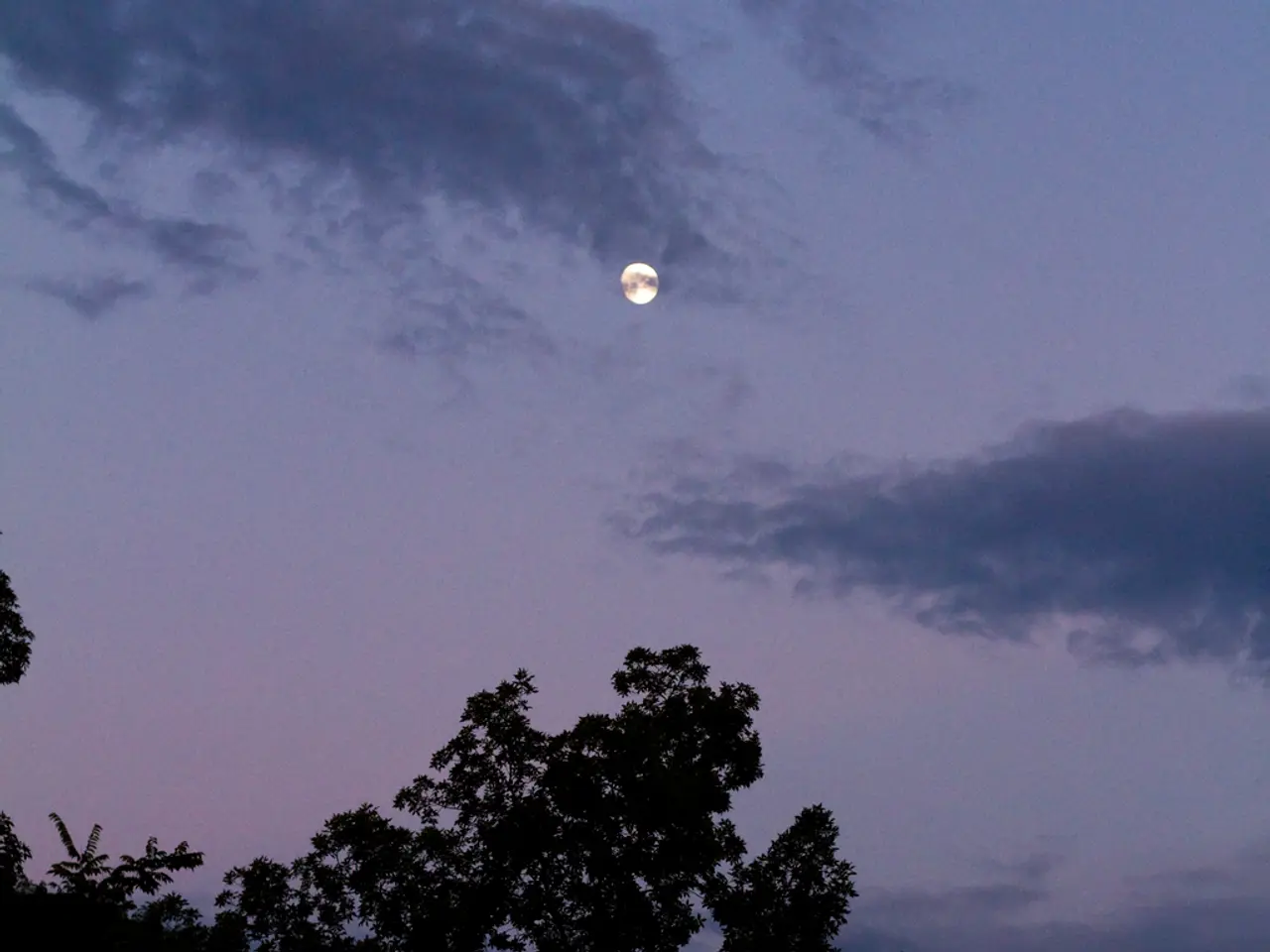Lunar Impact on Human Beings: A Discussion
The moon, a celestial body that has captivated humanity for centuries, has been the subject of numerous studies regarding its potential impact on human behavior and sleep. However, the findings have been considered controversial due to conflicting studies.
One intriguing study conducted at a hospital in Fukutsu, Japan, revealed a pattern in human births that seemed to align with the lunar cycle. The examination of 1,507 births showed a higher number of births at night around the time of a full moon and a higher number of births during the day around the time of a new moon.
However, not all studies have shown such a correlation. A separate study of 23,689 births from 1810 to 1929 revealed no pattern or correlation between the lunar cycle and frequency of births. This discrepancy highlights the need for more research to determine the exact effect the lunar cycle may have on human birth rates.
The moon's influence on sleep patterns is another area of interest. A 2013 study found that around the full moon, people spent 30% less time in deep sleep and slept for 20 minutes less than when there wasn't a full moon. This could be due to the moon's effect on melatonin levels and the sleep-wake cycle.
However, a study from 2021 compared the sleep patterns of rural indigenous communities in Argentina to college students in Seattle and found no significant difference in sleep patterns around the full moon. This suggests that external factors, such as artificial light and urban environments, may play a role in the moon's impact on sleep.
The power of belief and expectations can also have a significant impact on our physical, mental, and emotional health. This is evident in the placebo effect, where a person's health improves or changes after taking a false form of treatment due to the brain's ability to expect a certain outcome and release certain hormones based on that expectation.
The lunar cycle has been found to have an impact on the behavior of some organisms, such as fish and marine animals, which migrate and spawn according to the lunar cycle. Some species have even adapted some of their biological cycles to line up with the lunar cycle.
Despite these findings, it's important to note that there is no scientific evidence supporting a direct relationship between the moon and human health behavior. Controlled studies and statistical analyses do not show significant effects of lunar phases on health outcomes or behaviors.
The phenomenon of illusory correlation, where we subconsciously connect unrelated events based on our personal experiences and biases, can also contribute to the belief in a moon-human connection. This highlights the importance of objective research and statistical analysis in understanding the moon's potential impact on humans.
In conclusion, while the moon may have an impact on certain aspects of human behavior and sleep, more research is needed to fully understand these effects. It's crucial to maintain a sceptical yet open-minded approach to these fascinating findings.
Read also:
- Inadequate supply of accessible housing overlooks London's disabled community
- Strange discovery in EU: Rabbits found with unusual appendages resembling tentacles on their heads
- Duration of a Travelling Blood Clot: Time Scale Explained
- Fainting versus Seizures: Overlaps, Distinctions, and Proper Responses






